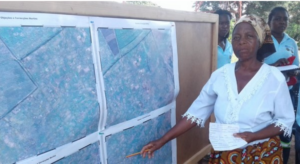Summary of Year 2
 During fiscal year (FY) 2020, ILRG’s scope grew dramatically, with activities started or developed in Madagascar, Malawi, Liberia, and Democratic Republic of Congo (DRC), and the focus of ILRG’s activities in Ghana, Mozambique, and Zambia shifted towards women’s economic empowerment (WEE) with funding from W-GDP. Yet progress was also stalled for the last two quarters of FY2020 due to the emergence of coronavirus disease 2019 (COVID-19) and subsequent international travel and local activity restrictions. This has meant that new activities in Malawi and Ghana did not start field work, and Liberia and Madagascar activities were delayed.
During fiscal year (FY) 2020, ILRG’s scope grew dramatically, with activities started or developed in Madagascar, Malawi, Liberia, and Democratic Republic of Congo (DRC), and the focus of ILRG’s activities in Ghana, Mozambique, and Zambia shifted towards women’s economic empowerment (WEE) with funding from W-GDP. Yet progress was also stalled for the last two quarters of FY2020 due to the emergence of coronavirus disease 2019 (COVID-19) and subsequent international travel and local activity restrictions. This has meant that new activities in Malawi and Ghana did not start field work, and Liberia and Madagascar activities were delayed.
Nevertheless, there were substantial achievements in FY2020: tens of thousands of women, men, and children participated in documentation of land rights for the first time in Ghana, Zambia, and Mozambique. At the same time that rights were first recorded, ILRG examined the extent to which these processes are sustainable and can be self-funded, and planned for long-term land administration using decentralized or community-based systems. Women’s land rights were a major focus, and ILRG successfully increased the percent of women with registered rights.
New private sector partnerships were negotiated in Mozambique with Novo Madal, Portucel, and Green Resources, which will be implemented through local partners in FY2021. The first year of a partnership with PepsiCo on WEE in the potato supply chain in West Bengal was completed successfully, with competitive harvests from female land leasing groups, as well as adapting and piloting of PepsiCo’s training materials to more effectively reach women. The long-standing partnership in Ghana with Hershey and Ecom Agroindustrial Corp. (ECOM) on land documentation and farm rehabilitation continued, demonstrating challenges related to farmer willingness to pay for land documents and a less productive than anticipated set of non-cocoa crops from land under rehabilitation. Yet new partnerships are emerging in Ghana with ECOM, Hershey, and new partner Mars related to WEE.
Policy processes and engagements were productive this year, with new openings in Mozambique for ILRG to formally engage in the policy and legislative process. The National Land Commission accepted ILRG’s proposal to support the national process of widespread consultation on the land law and land policy. This included input on the consultation methodology, as well as an agreement that ILRG will directly support the commission by developing a digital form to be used in thousands of surveys, provide the tablets that will be used to implement the survey, and establish the database for presentation of the data. In Zambia, ILRG provided technical and analytical support to: 1) the final validation of the draft National Land Policy; 2) development of customary gender guidelines; and 3) drafting of a Community Based Natural Resource Management Policy. In Ghana, ILRG continued to carry out analysis and build relationships on tree tenure reform, and in India, ILRG worked on lessons learned related to land leasing in West Bengal to influence the state’s leasing policy. ILRG continued to support USAID policy processes for example around sectoral and geographic case studies related to USAID’s Indigenous Peoples Policy. Capacity-building activities focused on gender integration and community natural resource governance in Zambia, particularly with five civil society and one private sector partner and their beneficiaries.
Priorities for FY2021 include launching and full-scale implementation of activities in: Malawi on documentation of women’s land rights; Madagascar on private sector partnership in landscape management; Liberia on community land rights documentation; DRC on responsible minerals; and Ghana on women’s land rights and empowerment.

